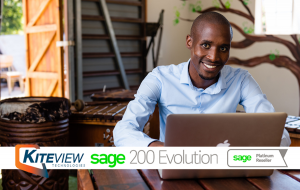Article credit: Sage
“I always tried to turn every disaster into an opportunity.” – J.D Rockefeller.
Over the last few months, accounting professionals have had to deal with equal measures of disaster and opportunity in the midst of the Coronavirus outbreak. Accountants have been a solid support to businesses during this time, providing advice and helping wherever they can with claims for government assistance.
This year’s Practice of Now report – conducted late last year in collaboration with Savanta – has shown similar themes. Data from more than 3,000 accounting professionals globally has laid bare a profession ripe for positive change, and perfectly placed for the challenges that 2020 presents.
What is disruption?
Disruption happens when clients drive change. Not a single profession is immune to disruption. If people need transport, their thoughts first turn to Uber or Lyft, rather than calling a taxi. Holidaymakers needing accommodation turn to AirBnB, much like they would to a travel agent or hotel booking website. And then there’s Amazon: people’s go-to for shopping online, often before they’ll go to their local malls.
While technology facilitates disruption, it is rarely the cause of it.
The Practice of Now survey showed disruption when 90% of South African respondents stated that clients expected improved service levels and more flexibility – but with no fee increases. It was further evident when 92% of respondents agreed that clients demand a broader service offering, including advising on relevant finance and accounting technologies.
Technology does, however, play a role: 91% agree that client expectations have widened to encompass advice on finance and accounting technologies, and 89% of accountants agree that the culture of digitalisation and the influx of new technologies has meant that they have had to invest more, quickly, to keep up with the market.
Across all these measures, South African respondents rated each at least 10% higher than other regions, like the UK.
Staying ahead of the pack
Preparing for disruption means listening to customers and using the following themes to inform service offerings:
1. Always on, everywhere
For many, social distancing has caused a massive change in working conditions, with many people now working from home. But how many accounting professionals are taking a deep look into what is needed to work from anywhere, at any time? Can you help clients to transfer documents between parties, both internally and externally? Can you help their business users to access their accounts and benefit from regular reporting and dashboards? How can you help facilitate this goal?
The requirements being highlighted now are here to stay, and clients will increasingly turn to their accountants for assistance.
This year’s Practice of Now survey revealed that, thanks to technology, 65% of accountants provide their clients with faster service, and 57% believe that it has increased client service and satisfaction. Technology is critical in accounting today and practices that don’t realise that will soon be left behind.
Again, these figures were 14% and 11% higher, respectively, than in the UK.
2. Compliance
Throughout the Coronavirus pandemic, accountants globally have shown their value by explaining and providing important data and helping clients to apply for emergency government aid, which has proven a lifeline for many businesses.
This was going to happen at some stage. Even before the events of 2020, governments were taking on a more regulatory approach to business. Accountants have found themselves needing to be increasingly on top of legislation – and not just tax legislation, but also employment laws and data protection regulations. For clients, boundaries between these varying areas of knowledge don’t exist, and they expect the people who manage their financial data to know how to keep it safe and ensure it’s accessible.
Our survey showed that there is a definite requirement for compliance knowledge, in addition to basic compliance work. Nearly 83% of respondents said that regulations from government, industry and international bodies were driving changes to work practices.
Is there somewhere for your practice to specialise in order to offer this degree of insight? Would training help? Or hiring a person or team that specialises in these matters? Are you sure that you can provide instant support if a client calls or mails? Is this perhaps a route to a new kind of client business to support traditional services?
3. Automate!
A customer who requires a wide range of service offerings that are best served by modern technology is most likely to trust you with the total management of their business – if you have built a diverse and digitised workforce and have a large service menu to match.
There is evidence that accountants are starting to model themselves on this image, and tools like automation and artificial intelligence (AI) are no longer uncommon. In fact, only 3% of accountants surveyed said that automation wouldn’t be of any help to their firm (compared to 6% in the UK), while 49% stated that they intended to automate time-consuming and repetitive tasks like data entry and number-crunching, as well as invoicing, workflows, and accounts payable processes.
Where do we find automation in a typical practice or business? Payroll is a good example. Online timesheets automate the capture of employee information, while payslips and other employee documentation can also be automated. On a simpler level, manual data entry is automated with help from a scanner and this can further be used to automate the creation of quarterly and annual direct taxes and accounts.
The tools for implementing automation are likely already in the software you and your clients use. Or they could be available as add-ons. Be sure to roll out automation in your practice first so that your staff know how to use it, and you can easily offer it as a new service to your clients.
Making a plan
To implement the above, you will need an action plan. Creating a plan is elementary. Ensure ownership is assigned so that the project can be managed and there is someone to rely on for an overview when required. Ensure any plans are well understood by all, and that they stay fluid to respond to any changes, regardless of what happens with the pandemic.
Assess your clients to see who would be most amenable to the changes above – there are usually two camps: traditional and progressive. Consider how you would sell the changes to either of the camps, but perhaps start with the progressives, as they will tolerate room to learn.
The Coronavirus pandemic has thrown a lot of additional work to accounting professionals. While a shock, it’s required if you want to become a practice fit for the demands and challenges of the 21st century.
Kiteview Technologies (Pty) Ltd was founded in May 2010 to provide the Sage Evolution Business Management solution to the SME market. The management team of Kiteview have combined +30 years of experience in the delivery of small to mid-market Financial & Business Management solutions. This experience, combined with a sound project implementation methodology has helped in Kiteview’s growth, becoming a Platinum status partner for SAGE Pastel within just 1 year.
Contact Us
For An Obligation Free Quote








